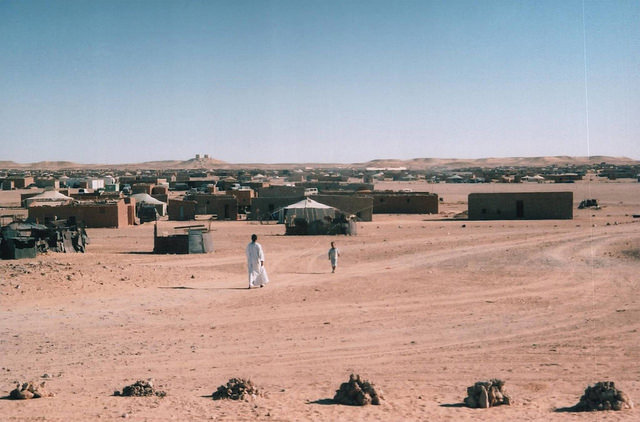Updated
Western Sahara – Life In the Polisario Camps – Robert M. Holley

The Forgotten, Auserd refugee camp, Algeria Photo: Joan Celda
Robert M. Holley
October 19, 2018

Robert M. Holley, Senior Policy Adviser, MACP
If you want a tourist’s view of any place on earth, ask a tourist. If you really want to get a good understanding of what life is like in Queens or Brooklyn, ask a fair sample of people who were born and raised there. What has changed? What is still pretty much the same? What accounts for the differences and continuities? The same can be said for Rome, Paris, London or Milwaukee. The same can also be said about life in the Polisario-run refugee camps in the scorching deserts of southern Algeria.
It took me a long while to get around to doing that. I traveled to the camps from time to time on official business for the US State Department, when I was at the US Embassy in Rabat, but I was never really more than a kind of official tourist with a message to deliver. What I was allowed to see by my constant Polisario minders was never anything they didn’t want me to see.
It wasn’t until I started making frequent trips to the Moroccan Sahara after 2003 that I first ran across a few former camp dwellers who were happy to share their stories with me. I have talked to hundreds of them since. Both those who returned to Morocco in the late 1980s, as well as those who were freshly back from their life in the Polisario gulags. Indeed, I would wager that I have probably talked to more former Polisario refugees than any other Westerner alive today, and probably more than 95% of most Moroccans. You learn a lot about life in the camps from talking to these people. They know it best.
If you really want to understand things like:
Is there enough food to go around? Why not?
How many people live there?
Are you free to say whatever you like without consequences?
Are you free to travel wherever you like, whenever you like?
What is the education system like for the children? And what about health care?
If you want to understand these things and more, you don’t have to go to the camps, you can talk to people who were born and raised there and eventually voted with their feet for something better and left. You can find thousands of them in Morocco’s Saharan provinces and they are easy to talk to.
State Department officials should take the time and talk to more of them before they write their annual human rights report about Western Sahara. It would make for a very different report about the place.
Morocco should also send delegations of them more often to Washington, at least once a year. Let them talk to members and staff in Congress, to think tank experts who follow affairs in North Africa and to journalists who have an interest in the region. I guarantee it’s a real eye-opening education.